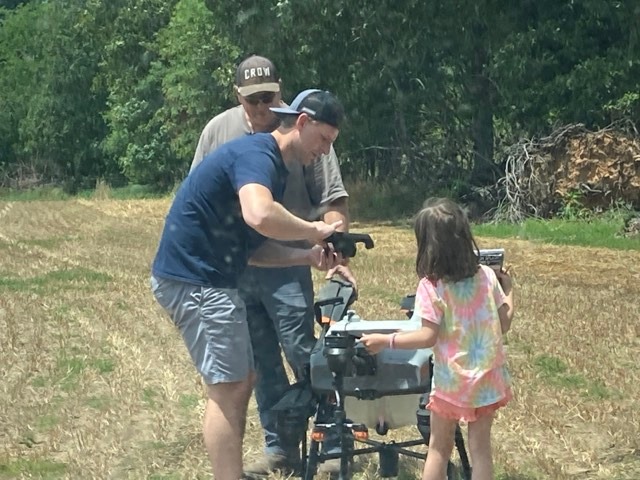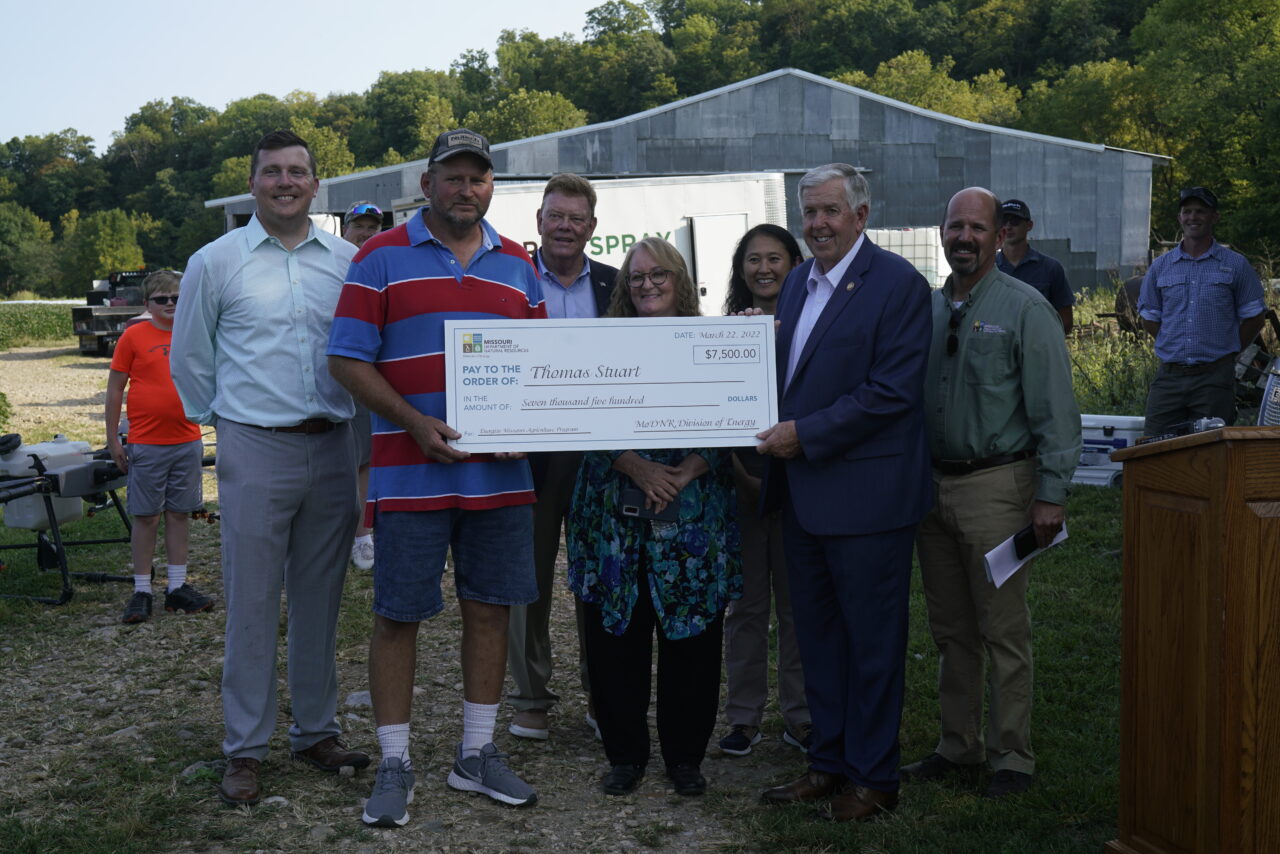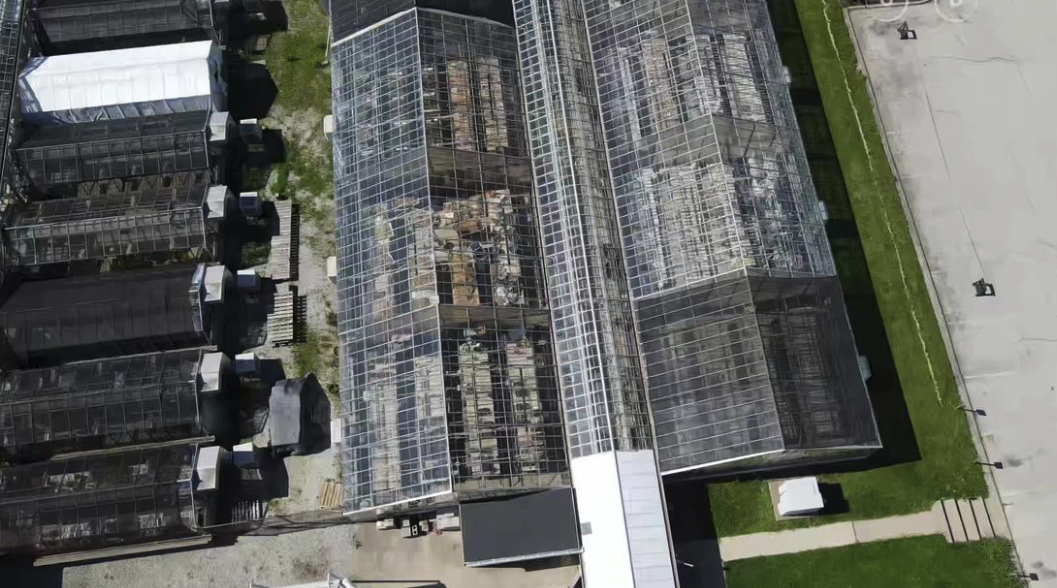For father-son team, Blake and Dakota Crow, integrating a T-30 into the day-to-day business of cattle ranching helped to open the door for Dakota to move home to Missouri and take a more active role in the family ranching business.
For the past eight years, Dakota and his family have made their home in Michigan, moving nearer to the family operation in May of this year.
“When he (Dakota) decided he was ready to come home, we got to talking and bringing in a drone was something he thought we could do together as a side deal, and we’re learning everything we need to know and getting licensed to do commercial stuff next year,” Blake says.
Blake built a trailer that includes a tank to mix the chemicals, a generator and other essentials the team will need to take the business to the next level. As for, Dakota, he is leveraging his own skillset to operate the drone.
“First and foremost, like every father and son, you look for a way to connect, and this has been a really great way for us to connect – and we each get to use our skill set. I’m doing the flying and it’s just been really fun to piece it all together,” Dakota shares. “For any son who helps out and works for their parents, you’re always trying to add as much value as you can, and to be able to add value through this skillset has been really great. I’m not the best at applying with a sprayer or driving a tractor, but flying the drone is something that I’m good at. And the other side is that the drone is just so wildly efficient,” Dakota says of the value proposition both his skillset and drone application adds to his family’s operation as well as their commercial application aspirations.
The team made the decision to implement a drone into their operation and pursue commercial application opportunities because of the smaller acreage sizes and the difficulty most beef producers in the area have securing plane and helicopter coverage.
“It’s so much quicker than other application methods, especially with our 30 – 40 – 50-acre pasture sizes. The T-30 is fast at covering those acres, and I haven’t run the data yet, but we are using less product than we normally do on those pastures when we apply with a tractor,” Blake says.
For Dakota, moving back to the family operation was a goal he has always had, sharing that in fifth grade he told his parents that he was going to be a farmer. Like a lot of farm parents, they encouraged him to try new things and get some money in the bank.
“I’ve just always had a love for it (the family beef operation), and I’ve always looked for a way to be a part of it,” he says.
Dakota is a father, himself, and it is important to him to see his children become a part of his family’s operation if they choose to do so, an opportunity he sees technology continuing to play a role in.
“Technology is playing a huge role in attracting kids back to the farm, and with advancements, like this drone, that don’t come with a huge cost barrier, it’s easier for kids to get in the game. You can’t just go out and buy a tractor or land when you’re first getting started, but they can buy a drone. It’s just a cool way for them to get involved — I have no doubt that my son is going to be a better (drone) pilot than I am because he plays video games and that’s essentially what this is.”
Dakota says that his kids are already showing interest, and he is letting them hold the controller, slide the buttons and help change out the battery. Most importantly, he says, his kids are with him, learning and honing their interests.
“My life mission, I picked up from a book, is pretty simple: innovate traditional methods.”
And few things are more innovative on the farm today than utilizing drones to spray, shaking up the traditional application methods of seed fertilizer, chemical and even pasture management.


